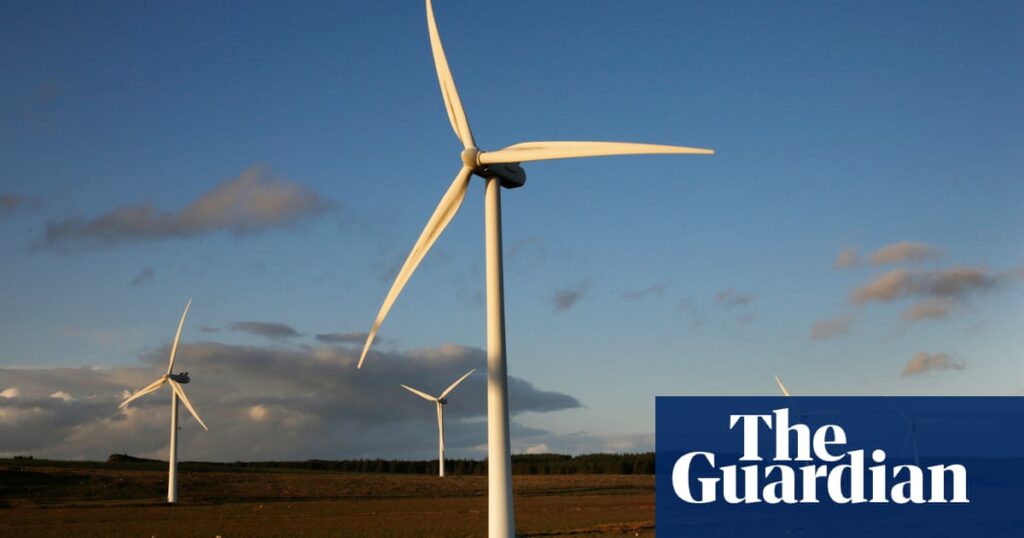The de facto ban on new onshore windfarms has been lifted by the Labour government, a move welcomed by environmentalists and energy experts.
The ban stemmed from two footnotes in the National Planning Policy Framework (NPPF), which required such strong evidence of local support that building turbines became nearly impossible.
In Labour’s new draft NPPF, these footnotes have been removed, putting onshore wind projects on equal footing with other infrastructure. The change takes effect immediately and will be confirmed in parliament on July 18.
Labour also announced plans to consult on designating large windfarms as nationally significant infrastructure projects. This would mean the energy secretary, Ed Miliband, would approve them, bypassing local councils.
Chancellor Rachel Reeves declared on Monday the end of the “absurd” restriction, stating that decisions on windfarms should be made nationally.
In a policy statement, officials noted: “Delivering our clean power mission will help boost Britain’s energy independence, save money on energy bills, support high-skilled jobs, and tackle the climate crisis.”
Historical Context and Immediate Actions
Michael Gove, the former communities secretary, announced in September that the ban would be lifted. However, the NPPF footnotes remained, making new projects nearly impossible. Analysis of the government’s renewable energy planning database shows no applications for new onshore wind projects were submitted post-announcement.
This policy change was promised in Labour’s election manifesto and was emphasized by Miliband when he was shadow energy secretary. The swift implementation has surprised many campaigners.
Reactions from Environmental Groups
Mike Childs, head of science, policy, and research at Friends of the Earth, stated: “By ending the onshore wind ban in England, Labour is making an important stride towards delivering on our climate goals while also paving the way for lower bills, as renewables produce some of the cheapest and cleanest energy available.”
Sam Richards, CEO of the pro-growth group Britain Remade, said: “Lifting the ban on new onshore windfarms in England is something Britain Remade has been campaigning for since we launched, so I am delighted Rachel Reeves has dropped the ban so soon after the election.”
Dr. Doug Parr, Greenpeace’s chief scientist, remarked: “As the recent gas price crisis shows, this ban was self-defeating for energy security, costly, and lost opportunities to cut emissions. The end of the ban is well overdue.”
Original Story at www.theguardian.com
